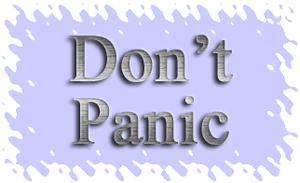Fear is the most typical of all panic attack symptoms. This is often characterized by the strong desire to flee. You cant predict a panic attack but a trigger is usually responsible for the onset of an attack. Stress, depression, phobias, drugs or a traumatic experience can be triggers.
If you experience immobilizing fear, lack of concentration, depression or phobias then they could lead eventually to a panic attack.
If you have one or more of the panic attack symptoms below then you could be on the verge of a panic attack:
Lightheaded
Tingling in hands, feet or scalp
Sweating
Chest pain or palpitations
Nausea
Chills or hot flushes
Shortness of breath
Intense fear
Diarrhea
Muscle spasm
Dry mouth
During a panic attack many people feel that they will lose control, have a heart attack, are suffering from a serious illness or are ‘going crazy’. Panic attacks usually only last for several minutes but they are frightening.
In my own experience the first panic attack symptom I get is tingling in my fingers and scalp and a dry mouth. I get six of the panic attack symptoms above before and during the attack as well as ‘the wave’ of panic which follows. I will talk about ‘the wave’ another time.
Recognizing the symptoms is a good thing as it alerts me to the fact that I am anxious and I then know to start my breathing techniques to lower my over-breathing which is causing the symptoms, so the panic attack doesn’t come on.
Forewarned is forearmed, so they say, and in my case this warning has helped me many a time.





